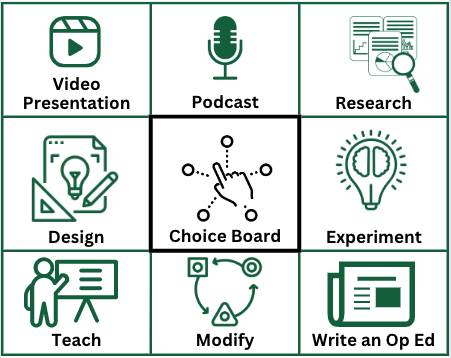It Helps To Be Transparent About Academic Integrity
You and your students will be out there wondering how fair final assessments can be when everyone is unsupervised. Thankfully, there are some students, that no matter what, will follow the rules and maintain their academic integrity. A small number, will seek to cheat no matter what we do. The group to focus on right now is that large majority that wants the rules to be clear, to be enforced, and for there to be a level playing field for all. The majority of students want to be honest, but at the same time, they do not want to feel at a disadvantage if they are.
When students see their instructor making specific efforts to protect against academic misconduct, many become more committed to academic integrity as a result. Here are example statements that might be helpful:
Designing the assessment:
- “I have designed the final assessment to ask you to apply what you have learned, using more personalized examples, rather than questions that ask you to recall the facts or recognize correct answers. This makes copying answers less relevant.”
- “I have designed the assessment expecting you will access your course materials. I have created variation in the questions that each student receives, so that exchanging answers does not work for students who would cheat in this way.”
Reducing pressure students feel:
- “I have reduced the weighting of the final assessment to lower the stakes for you during this anxious time. I know students under pressure sometimes take shortcuts or make blatant academic misconduct decisions and I do not want that to happen to you.”
- “The university policy for take home finals has reduced the time pressure compared to traditional exams. Also, if something goes wrong with your technology or you are feeling unwell, you can take breaks and come back to the exam. I know students under pressure sometimes take shortcuts or make blatant academic misconduct decisions and I do not want that to happen to you.”
Creating more student agency and responsibility:
- “I have provided you with information about the questions in advance, so that you know more about how to prepare for the exam. When there are fewer “mysteries” about the exam, usually students show more academic integrity, and that’s what I want.”
- “I have given you some choice in format/topic area for the final assessment. When students get to choose, I expect you will show me your best work and feel more confident about doing it honestly, and that’s what I want.”
Expressing your and students’ commitment:
- “I have asked all students to sign and return this document (e.g., see declaration of secrecy, or Sample – Open Book Exam Academic Integrity statement) as a further step in acknowledging the importance of individual commitment to academic integrity. If I find students have engaged in academic misconduct, this form can also be used to question students further about their understanding of the rules”.
- “I will follow up directly with students who have submitted work that raises suspicions of academic misconduct. I will follow up, in part, out of respect for all the students who did their work with academic integrity under these unexpected conditions. If your work concerns me, you can expect me to require an online or phone meeting to discuss. I will follow my College’s procedures and University of Saskatchewan policy.”


